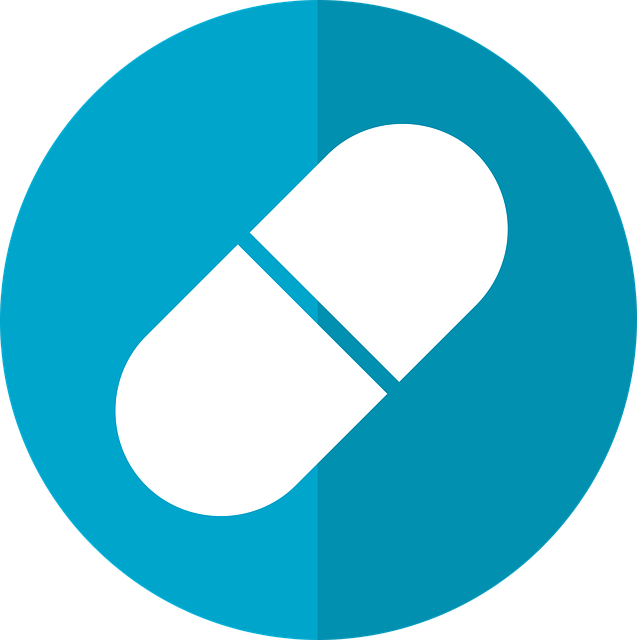GLP-1 drugs, medications mimicking natural hormone GLP-1, offer multifaceted cardiovascular benefits beyond blood sugar control. They reduce cardiac risks in type 2 diabetics and patients with existing heart conditions through improved vascular function, reduced inflammation, and lowered blood pressure. Clinical trials like EXAMINE and LEADER highlight their efficacy in preventing major adverse cardiovascular events (MACE). These drugs aid in heart failure prevention and minimize cardiovascular hospitalizations. While side effects exist, GLP-1 agonists present a promising strategy for cardiovascular management, with ongoing research exploring their potential in atherosclerosis treatment and combinational therapies.
GLP-1 agonists, naturally occurring hormones that mimic the effects of glucose-dependent insulinotropic polypeptide, have emerged as powerful tools in cardiovascular health management. This article delves into the multifaceted role of these innovative drugs, exploring their mechanisms of action, potential benefits for heart and blood vessel health, and their promise in preventing cardiovascular diseases. By examining clinical trials and understanding both the advantages and risks, we gain insights into GLP-1 drugs’ integration into modern cardiac care strategies.
Understanding GLP-1 Agonists and Their Function in the Body

GLP-1 agonists are a class of medications that mimic the effects of the natural hormone glucagon-like peptide-1 (GLP-1) in the body. This hormone plays a crucial role in regulating blood sugar levels and promoting insulin secretion in response to meals. By activating GLP-1 receptors, these drugs stimulate insulin production and enhance its action, thereby improving glycemic control. Beyond their diabetes treatment benefits, GLP-1 agonists have also been found to positively impact cardiovascular health.
Research has shown that these drugs can reduce the risk of cardiovascular events, such as heart attacks and strokes, in people with type 2 diabetes or established cardiovascular disease. They achieve this through various mechanisms, including improving blood vessel function, reducing inflammation, and lowering blood pressure. The positive effects on cardiovascular health make GLP-1 drugs a promising treatment option for those at high risk, offering additional benefits beyond their primary role in managing blood sugar levels.
The Link Between GLP-1 Drugs and Cardiovascular Health

The link between GLP-1 drugs and cardiovascular health has emerged as a promising area of research in recent years. GLP-1 agonists, a class of medications designed to mimic the effects of the natural hormone glucagon-like peptide-1 (GLP-1), have shown significant potential in reducing the risk of cardiovascular events. These drugs primarily act by stimulating insulin secretion and suppressing glucagon production, helping to lower blood sugar levels in people with type 2 diabetes. However, their benefits extend beyond glycemic control. GLP-1 agonists have been found to possess anti-inflammatory and cardiovascular protective effects, including reducing blood pressure, improving endothelial function, and promoting heart health.
Numerous studies have demonstrated that GLP-1 drugs can lower the risk of major adverse cardiovascular events (MACE) in patients with type 2 diabetes and established cardiovascular disease. By inhibiting excessive glucagon secretion and enhancing insulin release, these medications contribute to better blood sugar management, which is crucial for overall heart health. Moreover, GLP-1 agonists’ additional benefits, such as weight loss and reduced inflammation, further strengthen their role in maintaining cardiovascular wellness, making them a valuable addition to the arsenal of tools used in managing heart-related conditions.
Mechanisms by Which GLP-1 Agonists Protect the Heart and Blood Vessels

GLP-1 agonists protect the heart and blood vessels through several key mechanisms. Primarily, they enhance insulin secretion in a glucose-dependent manner, helping to regulate blood sugar levels. This effect is particularly beneficial for cardiovascular health, as sustained high blood glucose can lead to damage of the small blood vessels and accelerate atherosclerosis.
Additionally, GLP-1 drugs promote the proliferation of nitric oxide (NO) production, which improves vascular function by relaxing blood vessels and reducing their tone. This action contributes to lowering blood pressure and improving blood flow, thereby decreasing the risk of heart attacks and strokes. Furthermore, these agonists have anti-inflammatory properties, mitigating chronic low-grade inflammation that’s linked to cardiovascular diseases.
Clinical Trials Demonstrating the Efficacy of GLP-1 Drugs in Cardiovascular Disease Prevention

Clinical trials have played a pivotal role in demonstrating the potential of GLP-1 drugs in cardiovascular disease prevention. These studies have shown that GLP-1 agonists, a class of medications designed to mimic the effects of the natural hormone GLP-1, can significantly reduce major adverse cardiovascular events (MACE) in high-risk patients. For instance, landmark trials like EXAMINE and LEADER have highlighted the beneficial effects of these drugs in improving vascular health, lowering blood pressure, and reducing the risk of heart attacks and strokes.
The efficacy of GLP-1 drugs has been particularly notable in individuals with type 2 diabetes or established cardiovascular disease. By enhancing insulin secretion and suppressing glucagon release, these medications not only improve glycemic control but also positively influence lipid profiles and overall cardiac function. As a result, GLP-1 agonists have emerged as promising therapeutic options for primary and secondary prevention of cardiovascular events, opening up new avenues for managing and mitigating heart-related risks.
Benefits and Risks of Long-Term GLP-1 Therapy for Cardiac Patients

GLP-1 agonists have shown significant promise in improving cardiovascular health among patients with heart conditions. Long-term therapy with these drugs offers several benefits, including reduced risk of cardiac events, lowered blood pressure, and improved overall heart function. Studies suggest that GLP-1 drugs can help prevent heart failure and reduce the need for hospitalization due to cardiovascular complications.
However, as with any long-term treatment, there are risks associated with GLP-1 therapy. Common side effects include nausea, vomiting, and diarrhea, which can be particularly problematic for cardiac patients. Additionally, while GLP-1 drugs have shown promise in reducing overall mortality rates, their effect on specific cardiovascular outcomes remains an area of ongoing research. Careful monitoring by healthcare professionals is essential to balance the benefits against potential adverse reactions.
Integrating GLP-1 Agonists into Cardiovascular Management Strategies

The integration of GLP-1 agonists into cardiovascular management strategies is a promising development in the medical field, offering novel approaches to mitigating heart-related risks. These drugs, which mimic the effects of the natural hormone GLP-1, have demonstrated significant potential in treating and preventing cardiovascular diseases. By targeting specific receptors, they can help lower blood pressure, reduce inflammation, and improve overall heart health. This is particularly beneficial for patients with diabetes or those at high risk of cardiovascular events, as it provides an additional layer of protection beyond traditional treatments.
GLP-1 drugs have shown promise in clinical trials, leading to their increasing use in combination therapies. Their ability to enhance insulin secretion and suppress glucagon release makes them valuable tools in glycemic control. Moreover, the cardiovascular benefits extend beyond blood sugar regulation, making these agonists a versatile component of comprehensive management plans. As research progresses, a better understanding of their mechanisms will undoubtedly lead to more effective strategies for maintaining cardiovascular health.
Future Directions: Emerging Research on GLP-1 Drugs and Cardiovascular Health

The future of GLP-1 drugs in cardiovascular health looks promising, with emerging research continuing to uncover their potential benefits. Recent studies are exploring the role of these agonists in preventing and managing atherosclerosis, a key component of cardiovascular disease (CVD). Initial findings suggest that GLP-1 drugs may not only reduce the progression of atherosclerotic plaques but also promote plaque stabilization, thereby lowering the risk of cardiovascular events.
Furthermore, researchers are investigating the potential of GLP-1 therapies in combination with other cardiovascular medications, such as statins and beta-blockers. This synergistic approach could offer more comprehensive CVD management, potentially improving patient outcomes. As research continues to evolve, a deeper understanding of GLP-1 drugs’ mechanisms of action and their interaction with the cardiovascular system will undoubtedly lead to novel treatment strategies for heart health.
